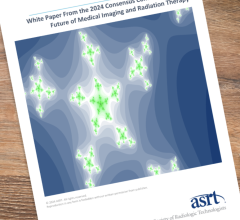June 28, 2012 — In upholding the Affordable Care Act (ACA), the U.S. Supreme Court sent a clear message that patients should be the first priority of the American healthcare system, responded both the American College of Cardiology (ACC) and the American Heart Association (AHA) following the ruling today.
The U.S. Supreme Court ruled that the ACA provision for required minimum coverage is valid and is not a constitutional obstruction. The court also ruled that the expansion of Medicaid is within Congress’ spending power. The court ruled that the law is constitutional by a 5-4 vote.
“The court's action in support of the ACA helps remind us what's really important — enabling all Americans to obtain affordable, quality healthcare,” said AHA CEO Nancy Brown. "The historic decision handed down today will benefit America's heart health for decades to come. Questions about the Affordable Care Act's constitutionality have overshadowed the law's progress. With this ruling, that uncertainty has finally been put to rest. We can now build on the significant advances already achieved under the act and truly transform our healthcare system.”
ACC President William Zoghbi, M.D., FACC, agreed, but said it will take time to see what the full impact of the decision will be. He supports the overall goal of ACA in creating a sustainable healthcare system.
“As we sort through the ramifications of this decision, it is important to remain focused on patients and overall healthcare delivery,” Zoghbi said. “The goal should be a sustainable healthcare system that rewards quality and that allows physicians and their patients to determine together what is the most appropriate care. The American College of Cardiology believes a system that measures performance and rewards quality is the best way to improve public health and reduce costs.”
For the 122 million Americans with pre-existing conditions, including the 7.3 million with some form of heart disease or stroke who are uninsured, this decision will likely be met with a great sigh of relief, Brown said.
“No longer will they be denied coverage or charged higher premiums because of their health status. Beginning in 2014, these Americans will finally be able to attain the lifesaving care they desperately need at a price they can afford,” she explained.
The ACA is the largest expansion of health care coverage since Medicare and Medicaid were initiated in the sixties. The Supreme Court decision means that efforts already underway to implement the law can and will continue. To that end, the ACC said it will continue to support the policies and provisions with the law that are in line with its overarching healthcare reform pronciplesiples, including those that expand healthcare coverage, encourage preventive care, and foster innovative payment and delivery system models that reward quality and ensure value.
At the same time, the ACC will also continue to work with Congress and the Centers for Medicare and Medicaid Services (CMS) on provisions that affect cardiovascular care. These include:
- Implementation of the controversial Independent Payment Advisory Board, a 15-member board tasked with developing and presenting proposals to the president and Congress, starting in 2014, to extend the solvency of Medicare, slow cost growth, improve quality-of-care, and reduce national health expenditures. The ACC remains concerned by the authority granted to an independent body to determine payment cuts for only physicians, particularly in light of ongoing payment reductions as a result of the Medicare physician payment formula.
- Implementation of the Physician Payments Sunshine Act requiring that industry disclose payments to physicians and teaching hospitals, both direct and indirect. While the ACC supports the overarching objectives of the act, the ACC has rasied concerns regarding CMS’s interpretation and proposed implementation of the act. Final regulations are expected in the coming months.
The ACC said it also will continue to advocate for overarching payment and medical liability reforms that were not included in the ACA, but critical for overarching health reform to be truly effective. In addition, the ACC is focused on several regulatory proposals and legislative efforts expected in the coming months that will have major impacts on cardiology though not directly associated with the ACA. Among them:
- The 2013 Medicare Physician Fee Schedule (the proposed rule is expected as early as this week)
- Additional cardiovascular coding changes as a result of continued bundling efforts
- The annual battle to repeal/stop the flawed sustainable growth rate (SGR) formula used to calculate Medicare physician payment
- Looming physician penalties for non-participation in federal incentive programs like e-prescribing, EHR and the Physician Quality Reporting System
The ACC says it is actively engaged in communications with CMS, lawmakers, industry and other stakeholders as appropriate on all of these issues.


 July 30, 2024
July 30, 2024 








